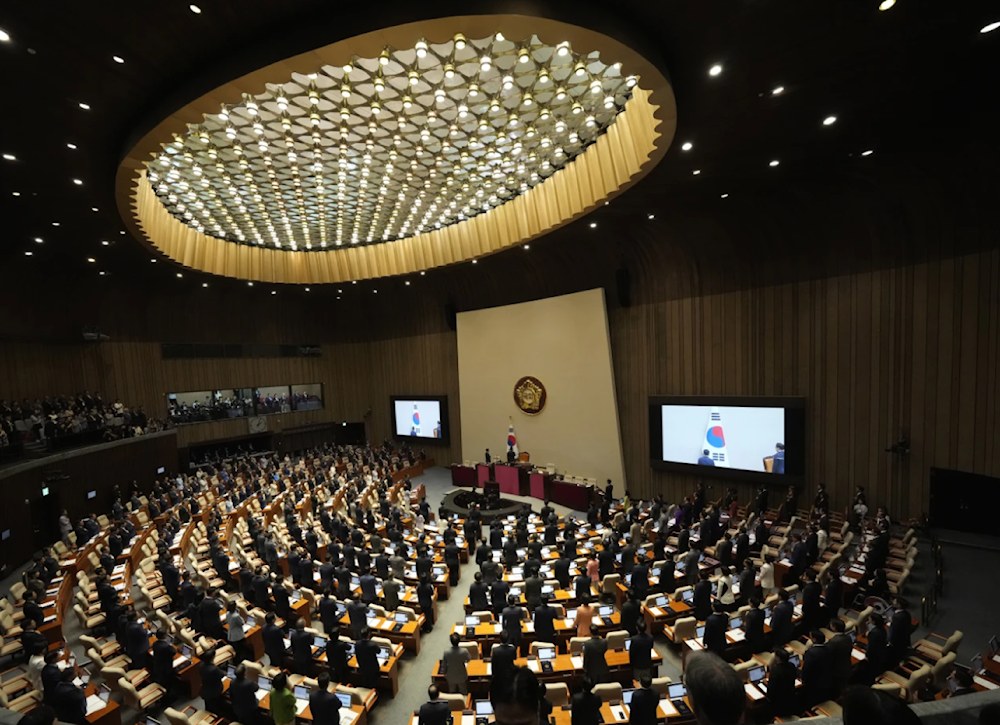South Korea's parliament pushes for Yoon's removal
If the South Korean President is dismissed, a new presidential election would be held within 60 days.
-

South Korean lawmakers salute a national flag during the opening ceremony of the 22nd National Assembly in Seoul, South Korea, on September 2, 2024. (AP)
If South Korean President Yoon Suk Yeol is reinstated, he may try to reimpose martial law or damage constitutional institutions, attorneys for parliament speculated on Tuesday as his impeachment trial nears its last phase.
After weeks of testimony from high-ranking current and former officials, including those facing criminal charges for their participation in the short declaration of martial law on December 3, attorneys for both sides summarized their arguments and evidence at the Constitutional Court.
"Declaring martial law in a situation that doesn't fit a national emergency is a declaration of dictatorship and military rule," Kim Jin-han, a lawyer representing the parliament told the judges, referencing pro-Yoon protesters who stormed another court in January.
"If he returns to work, we don't know if he will again exercise martial law," Kim alleged, adding that "we can't rule out the possibility that he will attack other state and constitutional institutions."
The Constitutional Court will hold another session on Thursday to interrogate three additional witnesses, including the impeached prime minister and the former police commander.
On December 14, the court will assess parliament's impeachment of Yoon and determine whether to permanently remove him from office or restore him. If he is dismissed, a new presidential election will be held within 60 days.
Yoon has contended that as president, he had the authority to issue his martial law declaration, which lasted around six hours before being withdrawn due to legislative opposition.
He cited political stagnation and threats from "anti-state forces" sympathetic to DPRK as further justifications for the decision.
His case in the Constitutional Court has also included claims that he never intended to prevent parliament from functioning, even though the order was publicly issued and military and police were sent to the assembly.
Yoon also dispatched the military to the National Election Commission, subsequently claiming that the decree was required in part because the NEC had refused to address concerns about election hacking, a charge denied by election authorities.
Yoon has also been charged with leading an uprising and detained last month.
As he is currently held in detention, the first preparatory hearing on the matter is set for Thursday.
Insurrection is one of the few criminal offenses to which a South Korean president is not immune. It is punished by life imprisonment or execution.

 3 Min Read
3 Min Read










